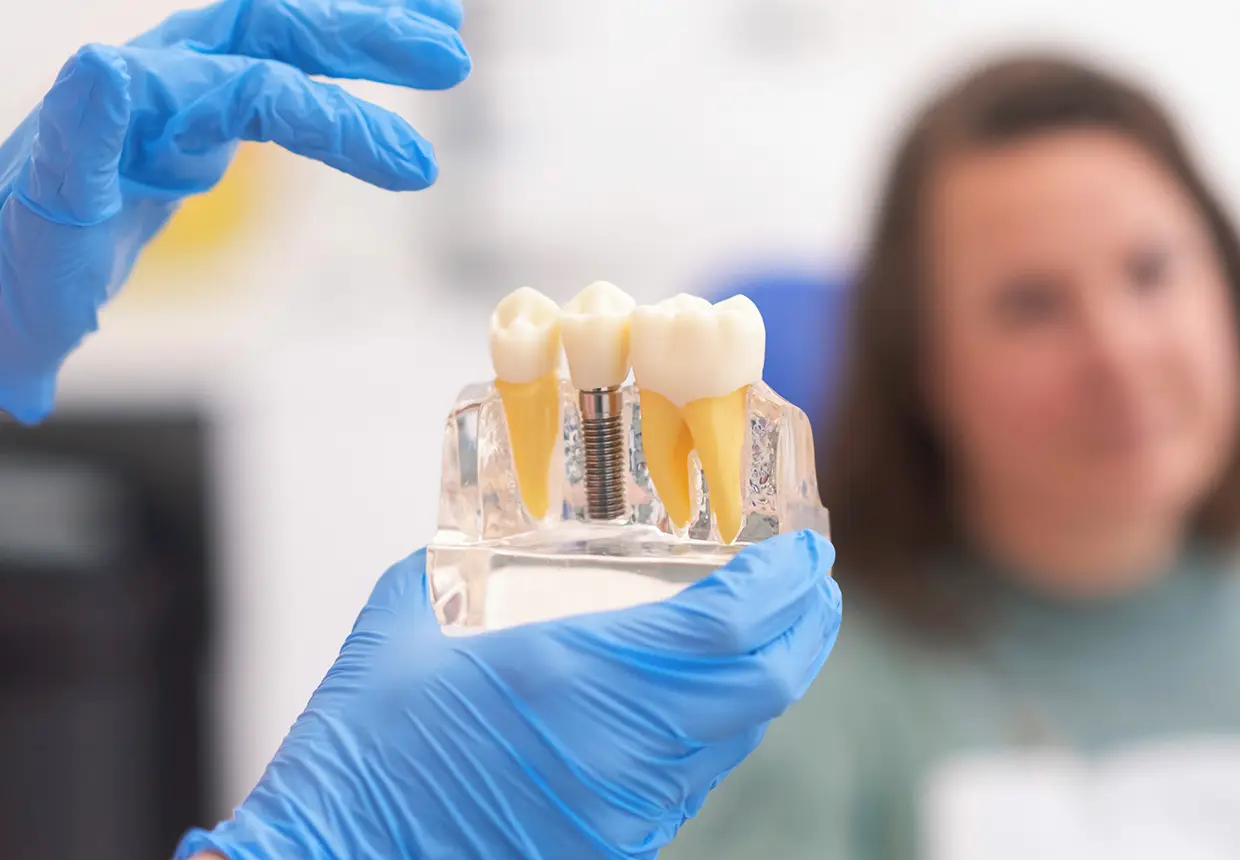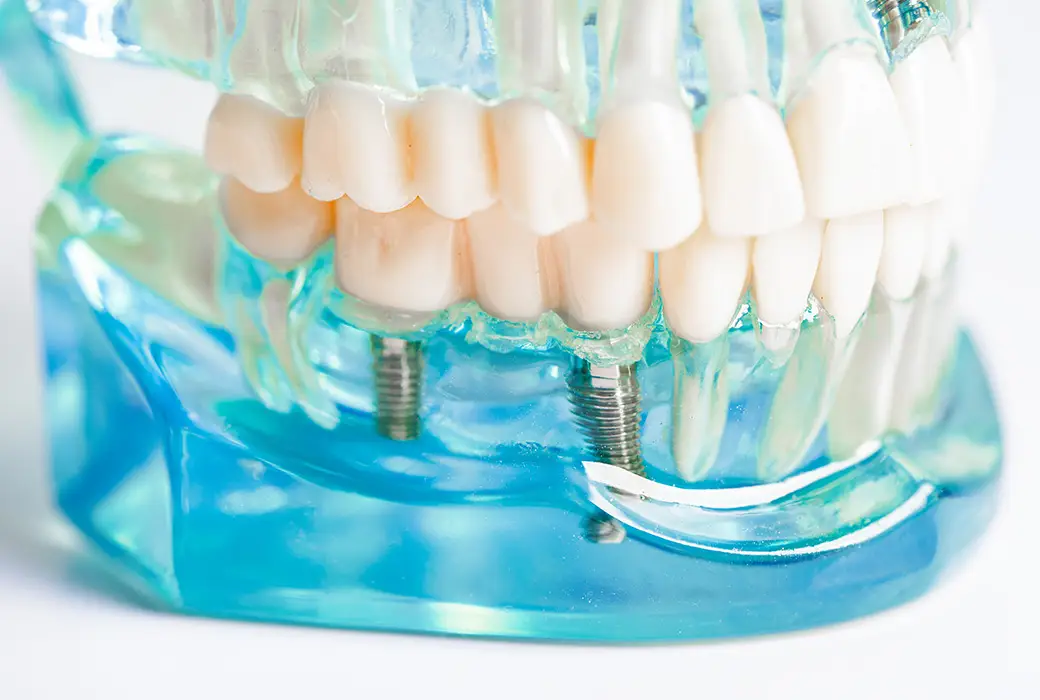
Top 7 risks of incorrectly performed dental implants
A smile is important, without a doubt, but a healthy dentition is vital!
Despite ongoing efforts and advancements in dentistry, the phenomenon of "tooth loss" remains common among the population.
Causes include untreated cavities, gum diseases, or trauma. For a long time, dental treatments for people with missing teeth were restricted to a choice between bridges and dentures.
According to a recent study by the ADA (American Dental Association), over 30% of people who face the loss of multiple teeth, particularly front teeth, give up on the possibility of having a perfectly functional smile due to the time, cost, and effort involved in getting multiple dental implants.

A key factor in deciding to opt for a dental implant is choosing the right implantologist.
Therefore, it is important to choose the right specialist in Implantology from the start to minimize risks and avoid complications that may arise after the procedure.

"A dental implant procedure can be considered successful when it exceeds the 1-year mark. Failures are either premature, occurring within the first 2 months, or late, up to 1 year. The warranty provided to the patient is proof of the treatment's success, both for me as a doctor and for the patient,” says Dr. Cătălin Martișcă, a specialist in Dento-Alveolar Surgery at DENT ESTET clinics.

7 risks of a failed dental implant:
- "Partial paralysis" - nerve injury
If the implant is inserted near or even into the nerves, the patient may experience desensitization of part of the mouth (permanent local numbness). Some cases remain untreatable, and the effects are permanent. - Infections at the implant site
The occurrence of infections in the gingival area and soft tissues is one of the risk factors for a poorly performed dental implant. The severity and spread of the infection can lead to the failure of the procedure. To prevent this side effect, good oral hygiene and strict adherence to postoperative instructions are necessary. - Loss of the dental implant
Implant mobility (when it moves) results from improper insertion or the body's rejection of the implant. If this occurs, replacing the dental implant should be done as soon as possible. The site where the implant was inserted requires re-treatment. Re-treatment costs approximately 2,500 euros per implant. - Failure of fusion between implant and bone
One of the greatest risks for a dental implant patient is the failure of fusion between the implant and the bone where it is placed. Osseointegration, the process of connecting the jawbone and the titanium root, is crucial for the success of the implant. - Development of nerve and soft tissue lesions
Although with a very low incidence, in some cases, during implant placement, temporary inflammation or lesions in the nerves and soft tissues may occur. If this does not resolve after a few days, the implantologist should be consulted urgently. In the worst case, the implant is removed, and supportive interventions that can last several months are required. - Sinus damage
The insertion procedure can also affect the sinuses when the length of the inserted implant is too long. Sometimes, the implant may withdraw, recovery takes a few months, and then the dentist decides if a new implant can be reinserting. - Breaking or fracturing of the dental implant
In some cases, due to unsuitable materials or the implantologist, the dental implant may break or fracture. In this situation, the patient can use the warranty of the work to request re-treatment of the implant. Diagnosing the type of triggering factor for this unpleasant situation is essential. The method by which the implant is removed is crucial for how it will be replaced with another dental implant. Therefore, it is very important that these procedures are performed with state-of-the-art technologies in the field. Additionally, in cases of jaw fractures or loss of bone volume, a preliminary grafting procedure will be required.
Come to DENT ESTET and find out from your implantologist if dental implant treatment is suitable for you! Schedule an online consultation now.



